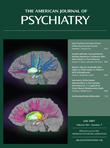Abstract
Objective: To evaluate the link between antidepressants and suicidal behavior and ideation (suicidality) in youth, adverse events from pediatric clinical trials were classified in order to identify suicidal events. The authors describe the Columbia Classification Algorithm for Suicide Assessment (C-CASA), a standardized suicidal rating system that provided data for the pediatric suicidal risk analysis of antidepressants conducted by the Food and Drug Administration (FDA). Method: Adverse events (N=427) from 25 pediatric antidepressant clinical trials were systematically identified by pharmaceutical companies. Randomly assigned adverse events were evaluated by three of nine independent expert suicidologists using the Columbia classification algorithm. Reliability of the C-CASA ratings and agreement with pharmaceutical company classification were estimated. Results: Twenty-six new, possibly suicidal events (behavior and ideation) that were not originally identified by pharmaceutical companies were identified in the C-CASA, and 12 events originally labeled as suicidal by pharmaceutical companies were eliminated, which resulted in a total of 38 discrepant ratings. For the specific label of “suicide attempt,” a relatively low level of agreement was observed between the C-CASA and pharmaceutical company ratings, with the C-CASA reporting a 50% reduction in ratings. Thus, although the C-CASA resulted in the identification of more suicidal events overall, fewer events were classified as suicide attempts. Additionally, the C-CASA ratings were highly reliable (intraclass correlation coefficient [ICC]=0.89). Conclusions: Utilizing a methodical, anchored approach to categorizing suicidality provides an accurate and comprehensive identification of suicidal events. The FDA’s audit of the C-CASA demonstrated excellent transportability of this approach. The Columbia algorithm was used to classify suicidal adverse events in the recent FDA adult antidepressant safety analyses and has also been mandated to be applied to all anticonvulsant trials and other centrally acting agents and nonpsychotropic drugs.



